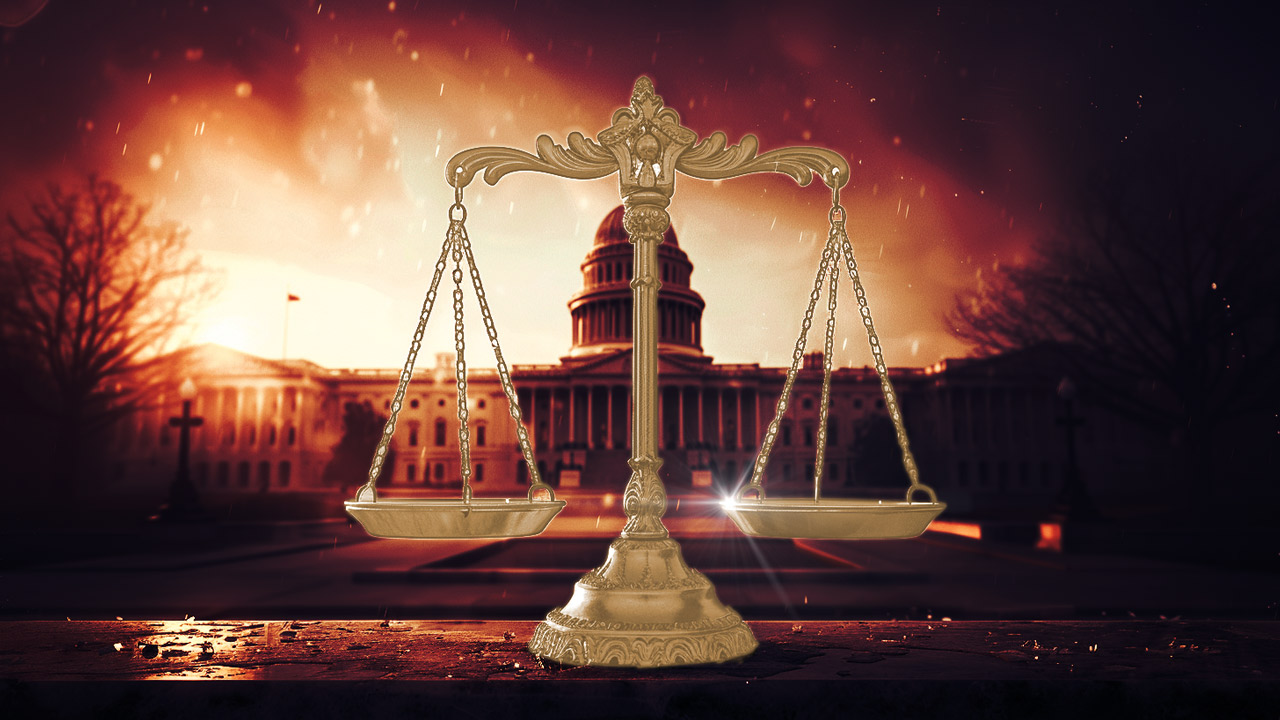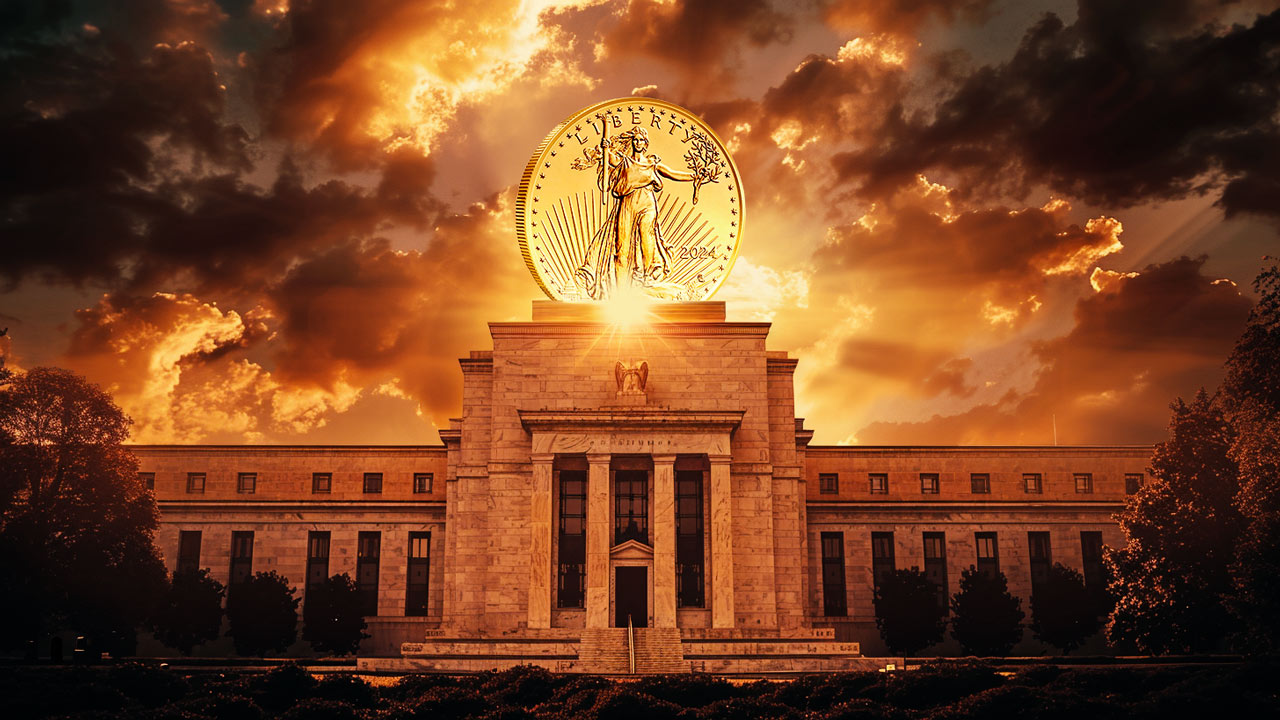Why Bother with Cash When You Can Own Gold? – Peter Schiff’s Gold Videocast with Albert K Lu (Video)
The conventional knock on gold is that it is inconvenient and expensive to hold, and doesn’t provide yield. But as Albert K Lu shows in his latest Gold Videocast, in a world of negative interest rates, this argument is becoming applicable to cash.
For instance, the world’s second largest reinsurance company has decided to pull cash from banks and store it in its own vaults to avoid negative rates. If you are going to do that, why not buy gold? Especially in a very weak economic environment.
I think people are figuring out that if you’re going to go to all this trouble holding physical bills, taking your deposits out of the bank where they once were very liquid and apparently very safe, and go to the trouble of vaulting them at home or in your company’s vaults as in Munich Re, maybe you should start thinking about gold.”
Reference Links
- Cash in Vaults Tested by Munich Re Amid ECB’s Negative Rates
- Japanese Seeking a Place to Stash Cash Start Snapping Up Safes
Follow along with the full transcript:
Hello. Welcome to SchiffGold. I’m Albert Lu.
Gold continues to have a fantastic year after almost 17% so far. And this is at a time when the greater stock market is having a lot of difficulty just staying even. I think the case for gold is good, and I think it’s understandable if you consider a couple things.
The case against gold used to be that it was inconvenient to hold, expensive to hold, and that it provided no yield. But things have changed, if you look at the way gold products have evolved.
We now have things like certificate programs, gold ETFs, and gold backed debit cards that make gold a lot cheaper and easier to buy, sell, and hold. And if you think about the way cash has evolved recently, it’s less attractive. Some of the less desirable properties that used to be attributed to gold now apply to cash.
For instance, cash in the bank was once assumed to be safe, and this is mostly because of the FDIC insurance program. But now with Dodd-Frank, and in particular, Title II and the orderly liquidation provision, this may not be the case.
So, you may have a case where you have a widespread banking crisis. And in this case, shareholders and creditors may be held accountable for the banks losses. And by creditors, we have to include depositors.
Also, consider that banks are not impervious to cyber threats. We had a recent event in February where the Bangladesh’s bank accounts at the Federal Reserve Bank of New York were hacked. The hackers, who have not yet been identified, got away with $81 million. And Bangladesh is part of the Swift system. You would assume that these vulnerabilities could be widespread. So, that is also something to consider.
Now consider yield. There was a time when bank deposits would earn interest. But thanks to central banks, this is not always the case. We have short-term interest rates being driven to zero, and in some cases below zero, in Europe for instance. And that has cut the incentive for holding cash. Now this was done supposedly to spur bank lending to get the economy back on track. But the truth is that this hasn’t worked at all. Banks have not increased their lending. You can just look at Europe to see that the banks have not increase the lending. Instead, what’s happened is the deposits at the ECB have gone up and they’re just paying this negative interest.
Now, why would they do that?
Because the alternative is even worse. You have a weak economy. You have weak banks – very poor economic conditions. Some of these banks, in particular Greek banks and Italian banks, have an increasing level of non-performing loans. So liquidity is not the problem; the banks are in bad shape and levering up doesn’t help. They actually need to de-lever.
And as far as helping the broader economy, I think Wilbur Ross summarized it really well in the Bloomberg interview. He says, “Look, as far as a greater economy and people who are looking for loans are concerned, it doesn’t matter if they don’t qualify at 5% or they don’t qualify at 3%. It makes no difference.” And I think that’s a good point. As a result, there’s a six-fold increase in deposits at the ECB in deposits of excess reserves. That doesn’t even count the reserves that they’re required to hold. So that program is clearly not working.
But it does have unintended consequences because it discourages saving in traditional vehicles. And we had last week news come out that Munich Re, which is the second largest worldwide reinsurance company has decided that it’s going to withdraw money from its bank accounts and instead vault them on their own.
Now this is a huge company. Its investment portfolio is 231 billion euro. So that’s about 261 billion US dollars. And it contains 324 million euro investment in physical gold as well. While this company has decided that it’s going take about 10 million euros out of deposit and hold it in vaults in two currencies to get around paying these negative interest rates. So that is a very interesting development.
And also, you see stories here and there about individuals going and buying personal vaults. And there was a story in the Wall Street Journal talking about how personal safe sales are increasing in Japan. I think double at the rate that they were before. So you see, I think people are figuring out that if you’re going to go to all this trouble holding physical bills, taking your deposits out of the bank where they once were very liquid and apparently very safe, and go to the trouble of vaulting them at home or in your company’s vaults as in Munich Re, maybe you should start thinking about gold.
I’m Albert Lu. Thanks for watching.
Get Peter Schiff’s most important Gold headlines once per week – click here – for a free subscription to his exclusive weekly email updates.
Interested in learning more about physical gold and silver?
Call 1-888-GOLD-160 and speak with a Precious Metals Specialist today!




 With the AI boom and green energy push fueling fresh copper demand, and with copper mines aging and not enough projects to match demand with supply, the forecasted copper shortage has finally arrived in earnest. Coupled with persistently high inflation in the US, EU, and elsewhere, I predict the industrial metal will surpass its 2022 top to reach a […]
With the AI boom and green energy push fueling fresh copper demand, and with copper mines aging and not enough projects to match demand with supply, the forecasted copper shortage has finally arrived in earnest. Coupled with persistently high inflation in the US, EU, and elsewhere, I predict the industrial metal will surpass its 2022 top to reach a […] America’s trust in its institutions has rapidly eroded over the past 20 years. We have a lower level of trust in our judicial system and elections than most European countries. Some of this is natural, as Americans are uniquely individualistic, but much of it arises from repeated government failures.
America’s trust in its institutions has rapidly eroded over the past 20 years. We have a lower level of trust in our judicial system and elections than most European countries. Some of this is natural, as Americans are uniquely individualistic, but much of it arises from repeated government failures. Decades of negative interest rate policy in Japan have ended. That could mean the end of the $20 trillion “yen carry trade,” once one of the most popular trades on foreign exchange markets, and a chain reaction in the global economy. The yen carry trade is when investors borrow yen to buy assets denominated in […]
Decades of negative interest rate policy in Japan have ended. That could mean the end of the $20 trillion “yen carry trade,” once one of the most popular trades on foreign exchange markets, and a chain reaction in the global economy. The yen carry trade is when investors borrow yen to buy assets denominated in […] With a hot CPI report casting a shadow of doubt on the likelihood of a June interest rate cut, all eyes are on the Fed. But they’ve caught themselves in a “damned if they do, damned if they don’t” moment for the economy — and the news for gold is good regardless.
With a hot CPI report casting a shadow of doubt on the likelihood of a June interest rate cut, all eyes are on the Fed. But they’ve caught themselves in a “damned if they do, damned if they don’t” moment for the economy — and the news for gold is good regardless.  It’s no secret that the American public is wildly ignorant of many issues that are central to the success of our nation. Just a generation ago it would have been unthinkable that less than half of the American population could recognize all three branches of government. America is in most cases far less educated about its government […]
It’s no secret that the American public is wildly ignorant of many issues that are central to the success of our nation. Just a generation ago it would have been unthinkable that less than half of the American population could recognize all three branches of government. America is in most cases far less educated about its government […]
Excuse me , but NO ONE that I know of can buy FOOD with a gold coin. I can see maybe some, but what good is it without a gold standard? It sits and collects dust.
For instance, the world’s second largest reinsurance company has decided to pull cash from banks and store it in its own vaults to avoid negative rates. If you are going to do that, why not buy gold?
Tell me about your gold backed personal debit cards
Explain how gold debit cards work. Does the customer store gold at what cost to tge holder of the “card?” Are there income tax problems with putchases? If I purchase Under Armour and my gold holding goes up/down in value do I pay capital gains/claim a loss for the transaction? What are the overall charges for the account?
Your gold backed debit cards?
Is this the same as #physicalgold that I have seen on the Internet ? The gold debit card thing I mean ?